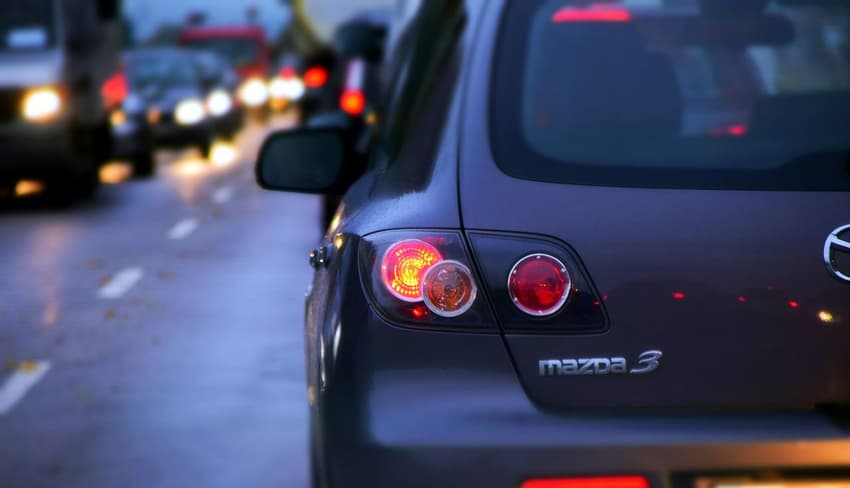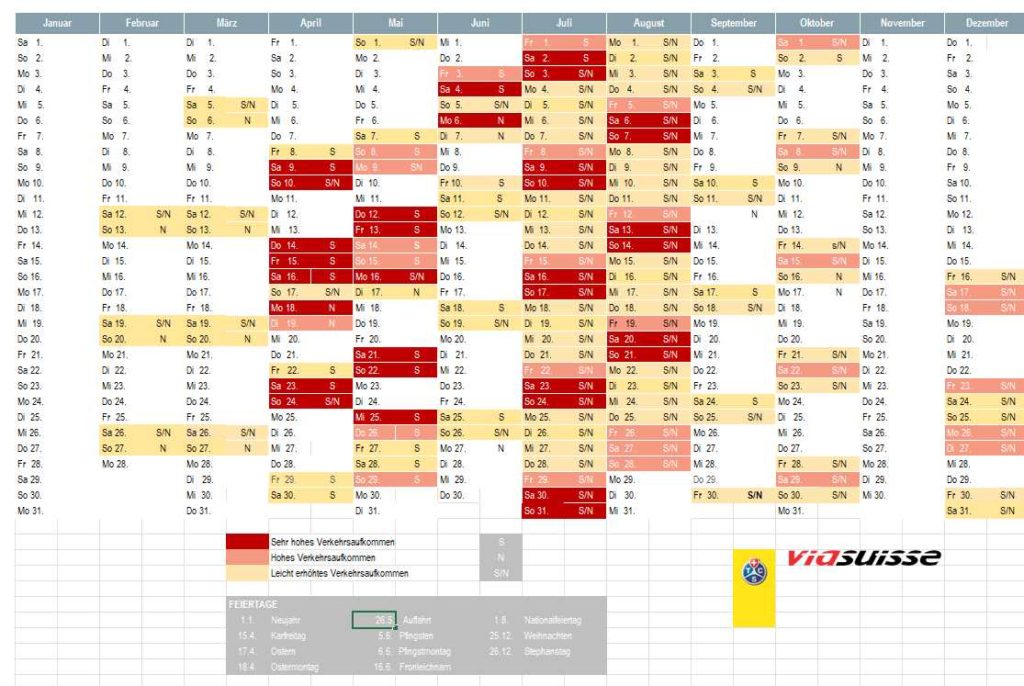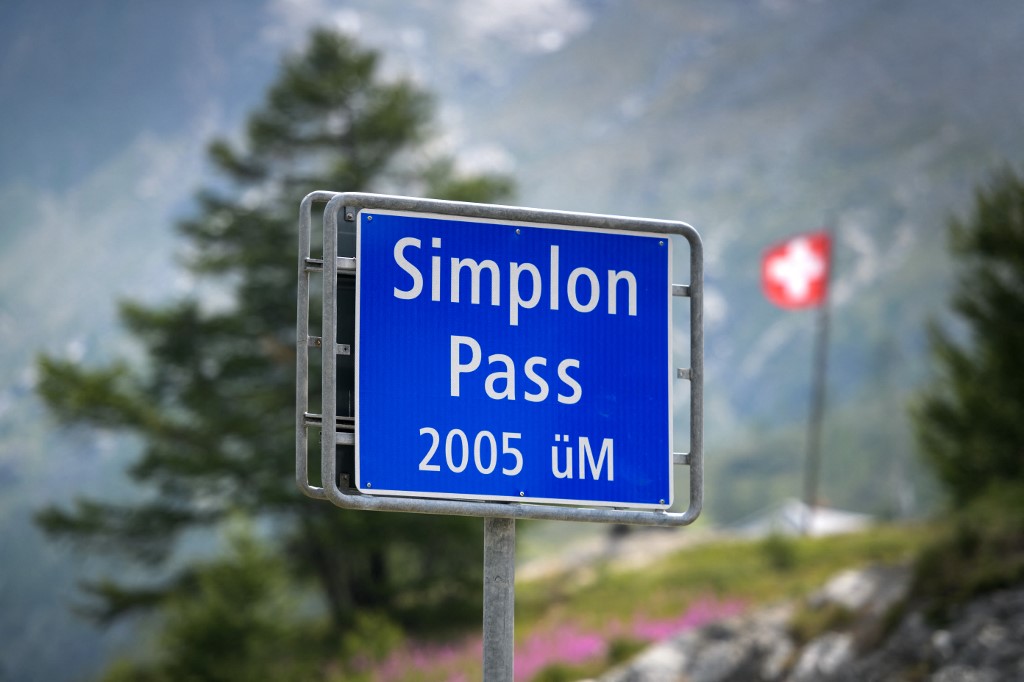The roads and dates to avoid driving in Switzerland this summer

With schools beginning their holiday break, traffic on Swiss roads will be particularly heavy in the coming days and weeks as many people will head south and west in droves.
With flight cancellations and other disruptions expected at Swiss and European airports this summer — not to mention soaring air fares — many people are opting to remain in Europe, driving, rather than flying, to their holiday destinations.
Given all these impediments to air travel, "we assume that vacations by car will be more popular than ever this summer", according to Jürg Wittwer, director of Touring Club Suisse (TCS) motoring organisation.
However, even road travel will not be without glitches.
“It is necessary to anticipate heavy traffic and bottlenecks on the roads leading towards Italy, France, Spain and Portugal” — the most popular vacation spots for tourists from Switzerland.
How can you make your trip smoother — and quicker?
If possible, you shouldn't plan to hit the road on the busiest days, such as the weekend, Wittwer said. “If you really want to travel faster, you should take your vacation from Wednesday to Wednesday, rather than from Saturday to Saturday".
Each year, TCS publishes the Traffic Jam Calendar, which lists the times of the year when traffic can be particularly bad, ranking days on four different traffic levels.
The standard days, with 'normal' traffic are in white, while slightly higher traffic days are in yellow.
Days with a high traffic volume are listed in pink/orange, while very high traffic volumes are listed in red.

Traffic calendar from Touring Club Suisse
READ MORE: What is Switzerland’s ‘traffic calendar’ and how can it help me save time?
You can also save time by avoiding the roads that are typically most congested during holidays, such as the south-bound Gotthard and Simplon tunnels.
These are usually the most congested roads in Switzerland:
- The A3/A1 Basel-Zurich axis
- The A3/A13 Zurich-Chur-San Bernardino-Bellinzona-Chiasso axis, particularly near Chur and the San Bernardino tunnel
- Bern and surroundings (A1/A12/A6 interchange)
- The A9 Lausanne-Montreux-Martigny-Brigue mainly near Lausanne and Montreux
- The Martigny - Grand-St.-Bernard tunnel axis
You can avoid these bottlenecked routes by taking alternative roads, which may require a detour and are longer in terms on kilometres, but they are likely to get you to your destinations quicker.
For example, instead of queuing up, possibly for hours, at the Gotthard tunnel, you can opt for the Gotthard Pass instead, just as motorists had done before the base tunnel was inaugurated in 2016.
The winding, curvy mountain road, peaking at 2,106 metres, will not only have less traffic, but also provides spectacular views.
Likewise, you can take the Simplon pass instead of the tunnel, also a more scenic route.

Photo by Fabrice COFFRINI / AFP
If there's truth in saying that "getting there is half the fun", then taking the longer but more picturesque route could prove to be more enjoyable.
In fact, if you choose secondary roads to avoid congested highways, Swiss geography is such that you almost always have to drive through mountain passes. While they do require some driving skills, they are virtually always paved, so unless you stray off the proverbial beaten path, it will be a smooth ride. (In fact, all of Switzerland's public roads are paved).
This link provides more information about Swiss mountain passes.
To sum up, if you travel mid-week rather than on weekends and opt for secondary routes, you just might get lucky and not end up in a (traffic) jam.
Comments
See Also
With flight cancellations and other disruptions expected at Swiss and European airports this summer — not to mention soaring air fares — many people are opting to remain in Europe, driving, rather than flying, to their holiday destinations.
Given all these impediments to air travel, "we assume that vacations by car will be more popular than ever this summer", according to Jürg Wittwer, director of Touring Club Suisse (TCS) motoring organisation.
However, even road travel will not be without glitches.
“It is necessary to anticipate heavy traffic and bottlenecks on the roads leading towards Italy, France, Spain and Portugal” — the most popular vacation spots for tourists from Switzerland.
How can you make your trip smoother — and quicker?
If possible, you shouldn't plan to hit the road on the busiest days, such as the weekend, Wittwer said. “If you really want to travel faster, you should take your vacation from Wednesday to Wednesday, rather than from Saturday to Saturday".
Each year, TCS publishes the Traffic Jam Calendar, which lists the times of the year when traffic can be particularly bad, ranking days on four different traffic levels.
The standard days, with 'normal' traffic are in white, while slightly higher traffic days are in yellow.
Days with a high traffic volume are listed in pink/orange, while very high traffic volumes are listed in red.

READ MORE: What is Switzerland’s ‘traffic calendar’ and how can it help me save time?
You can also save time by avoiding the roads that are typically most congested during holidays, such as the south-bound Gotthard and Simplon tunnels.
These are usually the most congested roads in Switzerland:
- The A3/A1 Basel-Zurich axis
- The A3/A13 Zurich-Chur-San Bernardino-Bellinzona-Chiasso axis, particularly near Chur and the San Bernardino tunnel
- Bern and surroundings (A1/A12/A6 interchange)
- The A9 Lausanne-Montreux-Martigny-Brigue mainly near Lausanne and Montreux
- The Martigny - Grand-St.-Bernard tunnel axis
You can avoid these bottlenecked routes by taking alternative roads, which may require a detour and are longer in terms on kilometres, but they are likely to get you to your destinations quicker.
For example, instead of queuing up, possibly for hours, at the Gotthard tunnel, you can opt for the Gotthard Pass instead, just as motorists had done before the base tunnel was inaugurated in 2016.
The winding, curvy mountain road, peaking at 2,106 metres, will not only have less traffic, but also provides spectacular views.
Likewise, you can take the Simplon pass instead of the tunnel, also a more scenic route.

If there's truth in saying that "getting there is half the fun", then taking the longer but more picturesque route could prove to be more enjoyable.
In fact, if you choose secondary roads to avoid congested highways, Swiss geography is such that you almost always have to drive through mountain passes. While they do require some driving skills, they are virtually always paved, so unless you stray off the proverbial beaten path, it will be a smooth ride. (In fact, all of Switzerland's public roads are paved).
This link provides more information about Swiss mountain passes.
To sum up, if you travel mid-week rather than on weekends and opt for secondary routes, you just might get lucky and not end up in a (traffic) jam.
Join the conversation in our comments section below. Share your own views and experience and if you have a question or suggestion for our journalists then email us at [email protected].
Please keep comments civil, constructive and on topic – and make sure to read our terms of use before getting involved.
Please log in here to leave a comment.